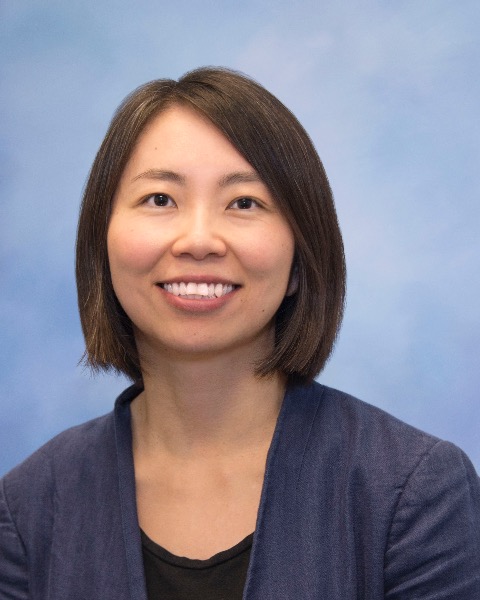
Telemedicine for Opioid Use Disorder Treatment in the Age of COVID-19
-
Register
- Non-Member - $39
- Regular Member - $29
- Retired - $29
- Early Career Physician - $29
- Resident - $19
- Student - $19
- Associate - $19
- ASAM Staff - Free!
- International Member - $29
- Emeritus Member - $29
- Provisional Member - $29
- Fellow Member - $29
- Honorary Member - $29
- CRT Member - $29

Telemedicine for Opioid Use Disorder Treatment in the Age of COVID-19
Recorded: Thursday, April 22, 2021 - Saturday, April 24, 2021
On-Demand Session
Overview
This 1.5-hour on-demand session from ASAM Virtual 2021 addresses the use of telemedicine for opioid use disorder treatment during the COVID-19 pandemic and provides research on the delivery, regulatory and guidance changes, and lessons learned from health systems and clinics using telemedicine to treat OUD.
This presentation will focus on the following: 1) research data on telemedicine delivery of OUD treatment and patient experiences using national US data, 2) regulatory and guidance changes to reduce barriers to telemedicine-delivery of OUD treatment and 3) lessons learned from a diverse array of health systems and clinics using telemedicine to deliver OUD treatment. In addition, we will discuss clinical cases that illustrate key clinical changes including urine toxicology screens, adhering to regulatory guidelines, treatment of complex OUD patients and other key clinical topics to help facilitate high quality addiction care since the start of COVID-19 and beyond.
The target audience for this intermediate level session includes physicians, nurse practitioners, physician assistants, other clinicians, researchers, residents, fellows, students, and counselors.
This session addresses the following ACGME Competencies: Patient Care, Medical Knowledge, Practice-Based Improvement, Systems Based Practice.
Learning Objectives
Upon completion, learners will be able to:
- Define key changes in federal regulations and guidance in the setting of COVID-19 and what they mean for telemedicine delivery of OUD treatment
- Describe important clinical considerations in using telemedicine-delivery of OUD treatment, including specific patient characteristics, clinic practices, and resources to consider
- Describe patient and clinician impacts from telehealth delivery of OUD treatment during Covid-19
Fees
| Rate Description | Rate |
| ASAM Member | $29 |
| Non-Member | $39 |
| Associate Member | $19 |
| Resident Member* | $19 |
| Student Member* | $19 |
*Residents, Fellows-in-training, Interns, and Students must join ASAM to receive a discounted registration rate. Click here to become an ASAM member. National and Chapter membership dues apply. There is no charge for Students to become a Member, but verification of student status is required.
Membership Question? Call ASAM at 1.301.656.3920, email us, or view the ASAM website for more information.
Refunds & Cancellations
All ASAM e-Learning Center refund requests must be made in writing to education@asam.org within 90 days of purchase. Those requesting refunds for courses that are in progress will receive partial refunds or e-Learning Center credit. Automatic full refunds will be made for any course with a live-course component that has been cancelled.
Registration Deadline: 04/30/2024
Course Instructions
- Click the "Contents" tab and select "Complete Introductory Activity". After completing the activity, return to the Contents tab.
- Select "View On-Demand Recording". After viewing the entire video, return to the Contents tab.
- Click "Complete Post Test" to answer quiz questions. You will have 10 attempts and must get at least 4 out of 5 questions correct. After completing the quiz, return to the Contents tab.
- Click "Complete Evaluation" to answer evaluation questions. Scroll down on all questions, there are answers that expand past the size of the window.
- Click the button “Claim Credits” in the box titled “Claim Credits & Certificate." Choose the type of credit and click submit. Click the button “View/Print Certificate” to save or print your certificate. If you ever lose your certificate, you can come back to the ASAM e-Learning Center and view it on your transcript (found in the Dashboard).
Need Assistance?
If you have are experiencing any log in issues, cannot access a course, need assistance claiming credit, or have other questions or concerns, please e-mail Education@asam.org for assistance.
For learners who may have difficulty typing, moving a mouse or reading, Essential Accessibility is an application available for use to assist.

Dr. Lewei (Allison) Lin
MD, MS
Allison Lin, MD, MS is an addiction psychiatrist and Assistant Professor in the Department of Psychiatry at University of Michigan as well as a research investigator at the VA Center for Clinical Management Research. She investigates ways to improve treatment access and quality of care for patients with opioid and other substance use disorders.

David T. Moore
MD, PhD
David T. Moore MD, PhD graduated from medical school at the University of Pennsylvania in 2012 and completed residency at the Yale School of Medicine in Psychiatry in 2016. He is an Assistant Professor of Psychiatry at the Yale School of Medicine and Director of the VISN 1 Clinical Resource Hub at VA Connecticut. He is mPI on a VA Implementation Science grant looking at providing buprenorphine via telemedicine and Director of the VA National Mental Health and Suicide Prevention ECHO.

Larissa T. Mooney
MD
Larissa Mooney, MD is a board certified addiction psychiatrist and Associate Clinical Professor of Psychiatry at the University of California, Los Angeles (UCLA). She is the Director of the UCLA Addiction Psychiatry Clinic and Chief of the Greater Los Angeles Veterans Affairs Substance Use Disorders Section, where she supervises psychiatrists in training in the clinical management of addictive and mental health disorders. Dr. Mooney is Past President of the American Academy of Addiction Psychiatry (AAAP), a Distinguished Fellow of the American Psychiatric Association (APA), and a Fellow of the American Association of Addiction Medicine (ASAM). Dr. Mooney has conducted research at UCLA Integrated Substance Abuse Programs on pharmacological and behavioral treatment interventions for addictive disorders. She is one of two PIs for the Greater Southern California Node of the National Institute on Drug Abuse (NIDA) Clinical Trials Network. She has current NIDA funding to study functional outcomes in cannabis users and treatment interventions for opioid use disorder and stimulant use disorder.
No Relevant Financial Disclosures

David Kan
MD, FASAM
David Kan MD, FASAM graduated from Northwestern University Medical School. He completed his general and forensic psychiatry training at the University of California, San Francisco. The majority of Dr. Kan's career has been spent in opioid treatment. Dr. Kan was the Medical Director of San Francisco VA Medical Center Opioid Treatment Program from 2005-2015 and he is the current Medical Director of Bright Heart Health. Dr. Kan is a faculty member within the UCSF Department of Psychiatry. Dr. Kan has won several awards for excellence in teaching. In addition to his psychiatry practice, Dr. Kan consults to attorneys and courts on medical-legal matters. Dr. Kan serves on California state's State Opioid Safety Workgroup. Dr. Kan is active within ASAM. Dr. Kan is the Immediate Past President of the California Society of Addiction Medicine.
CME, CE, CEU and Other Credit Types

ACCME Accreditation Statement
The American Society of Addiction Medicine is accredited by the Accreditation Council for Continuing Medical Education (ACCME) to provide continuing medical education for physicians.
AMA Credit Designation Statement
The American Society of Addiction Medicine designates this enduring material for a maximum of 1.5 AMA PRA Category 1 Credits™. Physicians should claim only the credit commensurate with the extent of their participation in the activity.
American Academy of Physician Assistants
This activity has been reviewed by the AAPA Review Panel and is compliant with AAPA CME Criteria. This activity is designated for 1.5 AAPA Category 1 CME credits. Approval is valid from 5/26/2021 to 5/26/2022. PAs should only claim credit commensurate with the extent of their participation. AAPA reference number: CME-202755.
NAADAC, the Association for Addiction Professionals
This activity has been approved by the American Society of Addiction Medicine, as a NAADAC Approved Education Provider, for educational credits. NAADAC Provider #295, ASAM is responsible for all aspects of the programming.
California Association for Drug/Alcohol Educators (CAADE)
This educational program is approved by CAADE: #CP40 999 1222.
California Association of DUI Treatment Centers (CADTP)
This educational program is approved by CADTP: #205.
California Consortium of Addiction Programs and Professionals (CCAPP)
This educational program is approved by CCAPP: #OS-20-330-1222.
Continuing Education Credits (CEUs)
Non-physician participants will receive a certificate of attendance upon completion of the activity and an online evaluation confirming their participation. Participants should submit his/her certificate of attendance to their professional organization/institute.
Maintenance of Certification (MOC) or Continuing Certification Programs (CCP)
American Board of Medical Specialties (ABMS)
Through the American Board of Medical Specialties (“ABMS”) ongoing commitment to increase access to practice relevant Continuing Certification Activities through the ABMS Continuing Certification Directory, The ASAM Virtual.2021 has met the requirements as a MOC Part II CME Activity (apply toward general CME requirement) for the following ABMS Member Boards: Allergy and Immunology, Anesthesiology, Colon and Rectal Surgery, Family Medicine, Medical Genetics and Genomics, Nuclear Medicine, Physical Medicine and Rehabilitation, Plastic Surgery, Preventive Medicine, Psychiatry and Neurology, Radiology, Thoracic Surgery, Urology
American Board of Preventive Medicine (ABPM)
The American Board of Preventive Medicine (ABPM) has approved this activity for a maximum of 1.5 credit towards ABPM MOC Part II requirements.
American Board of Anesthesiology (ABA)
This activity contributes to the CME component of the American Board of Anesthesiology’s redesigned Maintenance of Certification in Anesthesiology TM (MOCA®) program, known as MOCA 2.0®.
American Board of Pediatrics (ABP)
Successful completion of this CME activity, which includes participation in the activity, with individual assessments of the participant and feedback to the participant, enables the participant to earn a maximum of 1.5 MOC point in the American Board of Pediatrics’ (ABP) Maintenance of Certification (MOC) program. It is the CME activity provider’s responsibility to submit participant completion information to ACCME for the purpose of granting ABP MOC credit.
American Board of Internal Medicine (ABIM)
Successful completion of this CME activity, which includes participation in the evaluation component, enables the participant to earn up to 1.5 Medical Knowledge MOC point in the American Board of Internal Medicine’s (ABIM) Maintenance of Certification (MOC) program. Participants will earn MOC points equivalent to the amount of CME credits claimed for the activity. It is the CME activity provider’s responsibility to submit participant completion information to ACCME for the purpose of granting ABIM MOC credits.
American Board of Surgery (ABS)
Successful completion of this CME activity, which includes participation in the evaluation component, enables the learner to earn credit toward the CME and/or Self-Assessment requirements of the American Board of Surgery’s Continuous Certification program. It is the CME activity provider's responsibility to submit learner completion information to ACCME for the purpose of granting ABS credit.
American Board of Psychiatry and Neurology (ABPN)
Successful completion of this CME activity can be used to satisfy the American Board of Psychiatry and Neurology’s (ABPN) CME requirement for Maintenance of Certification program.
American Board of Addiction Medicine (ABAM)
Successful completion of this activity can be used to satisfy the American Board of Addiction Medicine (ABAM) Tmoc credit requirements.
Royal College of Physicians and Surgeons of Canada (RCPSC)
Royal College Fellows can use participation in Accredited Continuing Medical Education to earn Section 3 Credits.
CME Committee, Program Planning Committee, and Faculty Disclosure Information
In accordance with disclosure policies of ASAM and the ACCME, the effort is made to ensure balance, independence, objectivity, and scientific rigor in all CME activities. These policies include mitigating all possible relevant financial relationships with ineligible companies for the Planning Committees, CME Committee, MEC, and Faculty. All activity Planning Committee members and Faculty have disclosed relevant financial relationship information. The ASAM CME Committee has reviewed these disclosures and determined that the relationships are not inappropriate in the context of their respective presentations and are not inconsistent with the educational goals and integrity of the activity.

